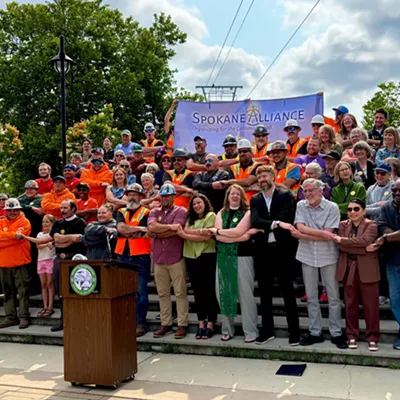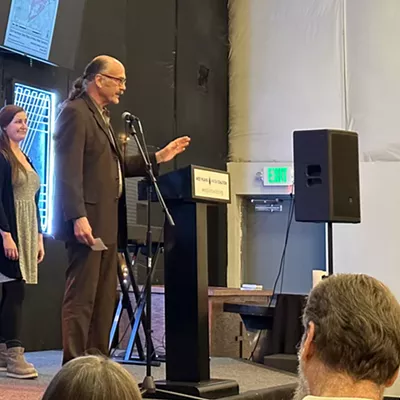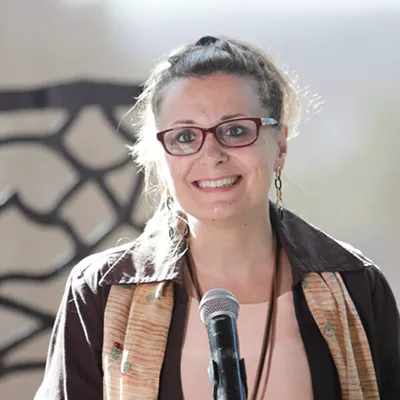It's daffy watching three or four generations of women fuss over the tombs, but it's instructive. This is a community built on duty, tradition and interfamilial gossip. It's like many other communities, then, except for that damned east wind. "It drives people crazy," cries Raimunda (Penelope Cruz) as it knocks over a vase of flowers.
The wind keeps the townspeople intimately aware of life's brutal transience. When Raimunda's mother and father burned alive three years before, the wind was credited with spurring the blaze so fast the couple didn't even rouse. That's not to say the wind was the cause of the deaths. The wind is death's booming herald and its accelerant, acting adamantly and with awesome force. The presence of the wind, then, is both metaphor for the supernatural and its manifestation.
Returning sporadically from the windlessness of Barcelona, Raimunda and her sister, Sole, witness this cloister from its doorway. Though the idea that ghosts walk among the townspeople isn't news to the sisters, they're no longer of that world. It's upsetting, then, to hear rumors that their mother's ghost, Irene, has been seen caring for their Aunt Paula. Paula took Raimunda in as a young girl, the people say, believing the tradition that Irene wants to return the favor.
Paula passes away, though, and Irene's ghost ends up hitching a ride in the back of Sole's Citroen station wagon. Clearly, mother has more debts to reconcile than just Paula's.
Meanwhile, Raimunda arrives home to find her husband dead at the hands of their daughter. She's been poor since moving to Barcelona, and now her struggle takes on new angles. What will she do about the body? The loss of income? Her daughter's (multifarious) loss of innocence?
Though the two threads aren't connected, other than through the characters, they play off each other to illuminating effect -- adding grief at times, assuaging it at others. The resulting story is less about specific trials than the nimbleness of the women -- Raimunda, Sole, the young Paula (named for her aunt) -- in dealing with it all.
Volver hinges on the way Amold & oacute;var interweaves the custom of the village with the modernity of Barcelona. Taking elements lifted from magic realism -- the townspeople's nonchalance about spirits, the sense of timeless duty, encroaching modernity -- but peeling back the veil to let the light of skepticism in, Amold & oacute;var is able to toy subtly with our idea of horror and the supernatural. When Irene first reveals herself to Sole, in Paula's room, it's clear she means no harm, but Amold & oacute;var still works to create tension. For the rest of the film, as people stumble upon Irene (trying hard to keep herself hidden), it is the ghost, not the living, who is usually spooked.
He's toying not just with superstition, but also with the medium of film, calling into question which community -- that connected with the afterlife or that divorced from it -- is more real. Insofar as each uses its specific mythos to snatch hope from hopelessness and happiness from hardship, the answer is both. (Rated R)














